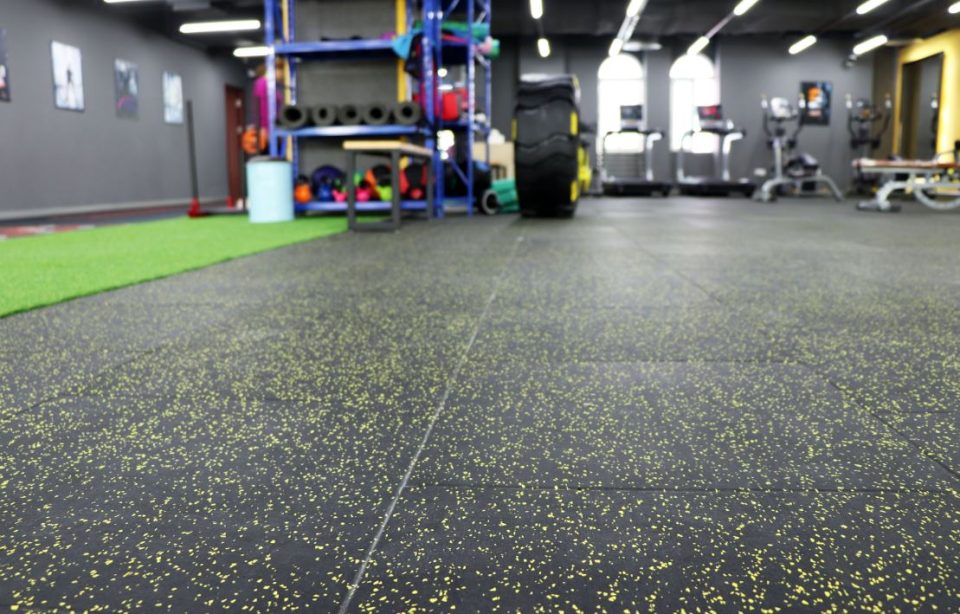In recent years, sustainability has evolved from a buzzword into a core principle shaping the world of interior design. As architects, designers, and homeowners become increasingly eco-conscious, the demand for environmentally responsible materials has soared. One standout solution gaining popularity across residential and commercial interiors is sustainable rubber flooring Dubai—a material once confined to gyms and industrial settings that is now making bold, stylish statements in modern design.
What Is Sustainable Rubber Flooring?
Sustainable rubber flooring is typically made from either recycled rubber, such as old tires, or natural rubber, which is harvested from the sap of rubber trees without harming the trees themselves. Both options offer eco-conscious consumers a green alternative to conventional flooring materials like vinyl or laminate, which often contain synthetic chemicals or are harder to recycle.
What makes rubber flooring “sustainable” goes beyond its composition—it also boasts a long lifespan, reducing the need for frequent replacement, and it can often be recycled again at the end of its use cycle. Additionally, its manufacturing process has become more environmentally friendly with innovations that reduce emissions and energy consumption.
The Green Appeal: Why Designers Are Making the Switch
1. Low Environmental Impact
Rubber flooring stands out for its low environmental footprint. Recycled rubber not only reduces waste that would otherwise go to landfills, but it also lessens the need for virgin material production. Natural rubber is a renewable resource, and many producers now adhere to sustainable harvesting practices to ensure long-term ecological balance.
2. Durability and Longevity
One of the greenest features of rubber flooring is its incredible durability. It can last up to 20 years or more with minimal maintenance, which reduces the need for replacement and, in turn, conserves resources. This makes rubber flooring ideal for high-traffic areas such as kitchens, hallways, commercial offices, and even schools.
3. Recyclable and Reusable
Unlike many traditional flooring options, sustainable rubber flooring can often be recycled at the end of its life. It can be repurposed into new flooring, playground surfacing, or construction materials—contributing to a closed-loop lifecycle that minimizes waste.
Elegance Meets Function: Design Innovations in Rubber Flooring
Gone are the days when rubber flooring came only in plain black rolls. Today’s rubber floors are highly customizable and stylish, offering a sophisticated edge to any space. Manufacturers have embraced the growing demand for aesthetic appeal, resulting in a wide array of colors, patterns, textures, and finishes.
– Modern Color Palettes
Designers can now choose from a spectrum of tones—from earthy neutrals to bold jewel shades. These color options allow rubber flooring to complement a variety of interiors, whether minimalist, industrial, or contemporary chic.
– Textured Finishes
Matte finishes, wood-grain effects, speckled designs, and even tile-mimicking patterns are available in rubber flooring collections. These textures not only add visual interest but also improve slip resistance, making the floors safer as well as more attractive.
– Seamless Installation
Many rubber flooring systems are designed for easy, seamless installation. Whether in tiles, sheets, or interlocking planks, they create a smooth look that enhances the sense of space and cleanliness in a room.
Health and Comfort Benefits
Beyond aesthetics and sustainability, rubber flooring also brings several health and comfort advantages that are reshaping how people evaluate flooring materials.
- Hypoallergenic and Non-toxic: High-quality rubber flooring is free from VOCs (volatile organic compounds), phthalates, and harmful adhesives, making it safe for indoor air quality—an essential consideration for homes, schools, and healthcare spaces.
- Shock Absorption: Rubber is inherently cushioned and resilient, which makes it comfortable underfoot. This feature is particularly beneficial in kitchens, playrooms, and workspaces where standing for long periods is common.
- Noise Reduction: Rubber naturally absorbs sound, making it a great option for multi-level homes, apartments, and office environments where acoustic performance is important.
Ideal Spaces for Rubber Flooring
Thanks to its durability, eco-credentials, and upgraded design, rubber flooring is now used far beyond gyms and factories. It’s an excellent fit for:
- Home interiors – kitchens, bathrooms, basements, play areas
- Commercial spaces – retail stores, coworking spaces, offices
- Educational institutions – classrooms, libraries, and corridors
- Healthcare – clinics, elder care facilities, hospitals
Its water resistance and anti-slip properties also make it ideal for wet or high-humidity environments.
Challenges to Consider
While sustainable rubber flooring offers many advantages, it’s important to weigh a few considerations before choosing it:
- Cost: The upfront price may be slightly higher than vinyl or laminate, although the long lifespan offsets this over time.
- Rubber Odor: Some rubber flooring, especially recycled types, may initially have a noticeable odor. This usually dissipates within a few days to a week.
- Design Limitations: While modern options are vast, extremely intricate patterns or wood-imitating visuals may not be as realistic as those found in luxury vinyl or laminate.
Conclusion: A Smart, Stylish, and Sustainable Choice
Rubber flooring has undergone a remarkable transformation. From its humble, functional beginnings, it has emerged as a stylish, sustainable, and smart solution for modern interiors. Whether you’re designing a contemporary home, upgrading a commercial space, or planning a green-certified building, eco-friendly rubber flooring Dubai offers the perfect fusion of durability, comfort, and design-forward aesthetics.
In a world increasingly defined by sustainability, rubber flooring proves that you don’t have to compromise elegance for environmental responsibility. Instead, you can have both—under your feet.

